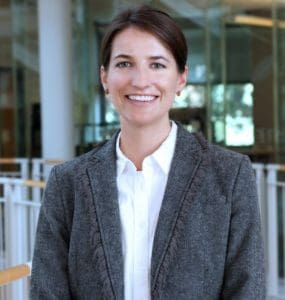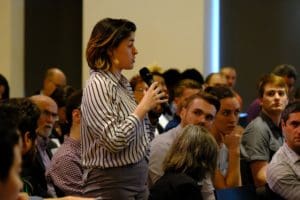Deprecated: Creation of dynamic property SocialSharing_Projects_Builder_Network::$profile_name is deprecated in /www/greenalphaadvisors_356/public/wp-content/plugins/social-share-buttons-by-supsystic/src/SocialSharing/Projects/Builder/Network.php on line 86
Deprecated: Creation of dynamic property SocialSharing_Projects_Builder_Network::$sharesLists is deprecated in /www/greenalphaadvisors_356/public/wp-content/plugins/social-share-buttons-by-supsystic/src/SocialSharing/Projects/Builder/Network.php on line 121
Deprecated: Creation of dynamic property SocialSharing_Projects_Builder_Network::$useShortUrl is deprecated in /www/greenalphaadvisors_356/public/wp-content/plugins/social-share-buttons-by-supsystic/src/SocialSharing/Projects/Builder/Network.php on line 146
Deprecated: Creation of dynamic property SocialSharing_Projects_Builder_Network::$mail_to_default is deprecated in /www/greenalphaadvisors_356/public/wp-content/plugins/social-share-buttons-by-supsystic/src/SocialSharing/Projects/Builder/Network.php on line 151
Deprecated: Creation of dynamic property SocialSharing_Projects_Builder_Network::$profile_name is deprecated in /www/greenalphaadvisors_356/public/wp-content/plugins/social-share-buttons-by-supsystic/src/SocialSharing/Projects/Builder/Network.php on line 86
Deprecated: Creation of dynamic property SocialSharing_Projects_Builder_Network::$sharesLists is deprecated in /www/greenalphaadvisors_356/public/wp-content/plugins/social-share-buttons-by-supsystic/src/SocialSharing/Projects/Builder/Network.php on line 121
Deprecated: Creation of dynamic property SocialSharing_Projects_Builder_Network::$useShortUrl is deprecated in /www/greenalphaadvisors_356/public/wp-content/plugins/social-share-buttons-by-supsystic/src/SocialSharing/Projects/Builder/Network.php on line 146
Deprecated: Creation of dynamic property SocialSharing_Projects_Builder_Network::$mail_to_default is deprecated in /www/greenalphaadvisors_356/public/wp-content/plugins/social-share-buttons-by-supsystic/src/SocialSharing/Projects/Builder/Network.php on line 151
Deprecated: Creation of dynamic property SocialSharing_Projects_Builder_Network::$profile_name is deprecated in /www/greenalphaadvisors_356/public/wp-content/plugins/social-share-buttons-by-supsystic/src/SocialSharing/Projects/Builder/Network.php on line 86
Deprecated: Creation of dynamic property SocialSharing_Projects_Builder_Network::$sharesLists is deprecated in /www/greenalphaadvisors_356/public/wp-content/plugins/social-share-buttons-by-supsystic/src/SocialSharing/Projects/Builder/Network.php on line 121
Deprecated: Creation of dynamic property SocialSharing_Projects_Builder_Network::$useShortUrl is deprecated in /www/greenalphaadvisors_356/public/wp-content/plugins/social-share-buttons-by-supsystic/src/SocialSharing/Projects/Builder/Network.php on line 146
Deprecated: Creation of dynamic property SocialSharing_Projects_Builder_Network::$mail_to_default is deprecated in /www/greenalphaadvisors_356/public/wp-content/plugins/social-share-buttons-by-supsystic/src/SocialSharing/Projects/Builder/Network.php on line 151
Deprecated: Creation of dynamic property SocialSharing_Projects_Builder_Network::$profile_name is deprecated in /www/greenalphaadvisors_356/public/wp-content/plugins/social-share-buttons-by-supsystic/src/SocialSharing/Projects/Builder/Network.php on line 86
Deprecated: Creation of dynamic property SocialSharing_Projects_Builder_Network::$sharesLists is deprecated in /www/greenalphaadvisors_356/public/wp-content/plugins/social-share-buttons-by-supsystic/src/SocialSharing/Projects/Builder/Network.php on line 121
Deprecated: Creation of dynamic property SocialSharing_Projects_Builder_Network::$useShortUrl is deprecated in /www/greenalphaadvisors_356/public/wp-content/plugins/social-share-buttons-by-supsystic/src/SocialSharing/Projects/Builder/Network.php on line 146
Deprecated: Creation of dynamic property SocialSharing_Projects_Builder_Network::$mail_to_default is deprecated in /www/greenalphaadvisors_356/public/wp-content/plugins/social-share-buttons-by-supsystic/src/SocialSharing/Projects/Builder/Network.php on line 151
Deprecated: Creation of dynamic property SocialSharing_Projects_Builder_Network::$profile_name is deprecated in /www/greenalphaadvisors_356/public/wp-content/plugins/social-share-buttons-by-supsystic/src/SocialSharing/Projects/Builder/Network.php on line 86
Deprecated: Creation of dynamic property SocialSharing_Projects_Builder_Network::$sharesLists is deprecated in /www/greenalphaadvisors_356/public/wp-content/plugins/social-share-buttons-by-supsystic/src/SocialSharing/Projects/Builder/Network.php on line 121
Deprecated: Creation of dynamic property SocialSharing_Projects_Builder_Network::$useShortUrl is deprecated in /www/greenalphaadvisors_356/public/wp-content/plugins/social-share-buttons-by-supsystic/src/SocialSharing/Projects/Builder/Network.php on line 146
Deprecated: Creation of dynamic property SocialSharing_Projects_Builder_Network::$mail_to_default is deprecated in /www/greenalphaadvisors_356/public/wp-content/plugins/social-share-buttons-by-supsystic/src/SocialSharing/Projects/Builder/Network.php on line 151
Deprecated: Creation of dynamic property SocialSharing_Projects_Builder_Network::$profile_name is deprecated in /www/greenalphaadvisors_356/public/wp-content/plugins/social-share-buttons-by-supsystic/src/SocialSharing/Projects/Builder/Network.php on line 86
Deprecated: Creation of dynamic property SocialSharing_Projects_Builder_Network::$sharesLists is deprecated in /www/greenalphaadvisors_356/public/wp-content/plugins/social-share-buttons-by-supsystic/src/SocialSharing/Projects/Builder/Network.php on line 121
Deprecated: Creation of dynamic property SocialSharing_Projects_Builder_Network::$useShortUrl is deprecated in /www/greenalphaadvisors_356/public/wp-content/plugins/social-share-buttons-by-supsystic/src/SocialSharing/Projects/Builder/Network.php on line 146
Deprecated: Creation of dynamic property SocialSharing_Projects_Builder_Network::$mail_to_default is deprecated in /www/greenalphaadvisors_356/public/wp-content/plugins/social-share-buttons-by-supsystic/src/SocialSharing/Projects/Builder/Network.php on line 151
Deprecated: Creation of dynamic property SocialSharing_Projects_Builder_Network::$profile_name is deprecated in /www/greenalphaadvisors_356/public/wp-content/plugins/social-share-buttons-by-supsystic/src/SocialSharing/Projects/Builder/Network.php on line 86
Deprecated: Creation of dynamic property SocialSharing_Projects_Builder_Network::$sharesLists is deprecated in /www/greenalphaadvisors_356/public/wp-content/plugins/social-share-buttons-by-supsystic/src/SocialSharing/Projects/Builder/Network.php on line 121
Deprecated: Creation of dynamic property SocialSharing_Projects_Builder_Network::$useShortUrl is deprecated in /www/greenalphaadvisors_356/public/wp-content/plugins/social-share-buttons-by-supsystic/src/SocialSharing/Projects/Builder/Network.php on line 146
Deprecated: Creation of dynamic property SocialSharing_Projects_Builder_Network::$mail_to_default is deprecated in /www/greenalphaadvisors_356/public/wp-content/plugins/social-share-buttons-by-supsystic/src/SocialSharing/Projects/Builder/Network.php on line 151
Deprecated: Creation of dynamic property SocialSharing_Projects_Builder_Network::$profile_name is deprecated in /www/greenalphaadvisors_356/public/wp-content/plugins/social-share-buttons-by-supsystic/src/SocialSharing/Projects/Builder/Network.php on line 86
Deprecated: Creation of dynamic property SocialSharing_Projects_Builder_Network::$sharesLists is deprecated in /www/greenalphaadvisors_356/public/wp-content/plugins/social-share-buttons-by-supsystic/src/SocialSharing/Projects/Builder/Network.php on line 121
Deprecated: Creation of dynamic property SocialSharing_Projects_Builder_Network::$useShortUrl is deprecated in /www/greenalphaadvisors_356/public/wp-content/plugins/social-share-buttons-by-supsystic/src/SocialSharing/Projects/Builder/Network.php on line 146
Deprecated: Creation of dynamic property SocialSharing_Projects_Builder_Network::$mail_to_default is deprecated in /www/greenalphaadvisors_356/public/wp-content/plugins/social-share-buttons-by-supsystic/src/SocialSharing/Projects/Builder/Network.php on line 151
Deprecated: Creation of dynamic property SocialSharing_Projects_Builder_Network::$profile_name is deprecated in /www/greenalphaadvisors_356/public/wp-content/plugins/social-share-buttons-by-supsystic/src/SocialSharing/Projects/Builder/Network.php on line 86
Deprecated: Creation of dynamic property SocialSharing_Projects_Builder_Network::$sharesLists is deprecated in /www/greenalphaadvisors_356/public/wp-content/plugins/social-share-buttons-by-supsystic/src/SocialSharing/Projects/Builder/Network.php on line 121
Deprecated: Creation of dynamic property SocialSharing_Projects_Builder_Network::$useShortUrl is deprecated in /www/greenalphaadvisors_356/public/wp-content/plugins/social-share-buttons-by-supsystic/src/SocialSharing/Projects/Builder/Network.php on line 146
Deprecated: Creation of dynamic property SocialSharing_Projects_Builder_Network::$mail_to_default is deprecated in /www/greenalphaadvisors_356/public/wp-content/plugins/social-share-buttons-by-supsystic/src/SocialSharing/Projects/Builder/Network.php on line 151
Deprecated: Creation of dynamic property SocialSharing_Projects_Builder_Network::$profile_name is deprecated in /www/greenalphaadvisors_356/public/wp-content/plugins/social-share-buttons-by-supsystic/src/SocialSharing/Projects/Builder/Network.php on line 86
Deprecated: Creation of dynamic property SocialSharing_Projects_Builder_Network::$sharesLists is deprecated in /www/greenalphaadvisors_356/public/wp-content/plugins/social-share-buttons-by-supsystic/src/SocialSharing/Projects/Builder/Network.php on line 121
Deprecated: Creation of dynamic property SocialSharing_Projects_Builder_Network::$useShortUrl is deprecated in /www/greenalphaadvisors_356/public/wp-content/plugins/social-share-buttons-by-supsystic/src/SocialSharing/Projects/Builder/Network.php on line 146
Deprecated: Creation of dynamic property SocialSharing_Projects_Builder_Network::$mail_to_default is deprecated in /www/greenalphaadvisors_356/public/wp-content/plugins/social-share-buttons-by-supsystic/src/SocialSharing/Projects/Builder/Network.php on line 151
We at Green Alpha like to give back to the community whenever possible, and that periodically means guest lecturing at the University of Colorado (since it’s in our backyard) or one of our alma maters. Our Chief Operating Officer Betsy Moszeter was especially fortunate recently to both guest lecture at the University of Oregon, where she received her undergraduate business degree, and then be invited to present at the UofO Net Impact Graduate Chapter’s first annual Impact Investing Forum. A family emergency prohibited her from participating in the Impact Investing Forum at the last minute; however, she had the great fortune to get to know some incredible MBA students while preparing for both events.

We hope you enjoy reading a small dose of what Betsy learned with and about Sarah Brinker, 2019 MBA Candidate and the Net Impact Graduate Chapter President.
Betsy: There is an impressive body of research that proves the mental, emotional, and physical benefits of travel. Tell us a little bit about what you gained from Semester at Sea.
Sarah: I was fortunate to study abroad my junior year of college at the University of Virginia (which I understand is also your MBA alma mater, Betsy!) through Semester at Sea, a floating university with 700 students and about 20 faculty from across the United States. The semester was 100 days, departing from The Bahamas then sailing to and porting in nine more countries like Brazil and Mauritius, and concluding in San Diego. (I spent the other semester in Sydney, Australia)
A moment that stands out to me was a visit in Cape Town, South Africa for my environmental science class. We visited a shantytown, which are essentially shacks made out of cardboard, wood, and tin scraps by people lacking means, creeping into sand dunes. The sand dunes are a sensitive ecosystem serving unique wildlife, yet people need a place to live. Should low-income people stop building their homes because of a sensitive ecosystem? It’s not my place to say, but contemplating the answer has opened my eyes to the complexities of conservation, climate change, and social justice. Also, I’d be remiss to leave out the fact that cruise ships are notoriously unsustainable. L This one was, at least, modestly sized.
Betsy: I’d love to hear about your experience as an employee of the Sierra Club. As you may know, Green Alpha has been working with the Sierra Club for quite a long time, and we’re the only financial services firm allowed to license the Club’s proprietary criteria to run an investment portfolio, making it one of the most progressive investment portfolios available.
Sarah: Working at the Sierra Club in Advancement-Communications in San Francisco for nearly five years was a dream. My friends would joke that I was the only one who actually liked going to work. Because the organization attracts value-aligned employees, I created relationships that last to this day. My experience with the Sierra Club inspires me to work for a mission-driven organization post-MBA. I felt like I obtained a second degree there since I learned so much about communications, fundraising, grassroots organizing, conservation, and clean energy. Working there when the Beyond Coal Campaign retired dozens of coal plants was really exciting. My experience with the Sierra Club inspires me to work for a mission-driven organization or company post-MBA.
Betsy: Tell us about your decision to attend business school to earn your MBA, and why the University of Oregon.
Sarah: As consumers become more aware of the real implications of climate change on their lives and livelihoods, they will demand that companies act more transparently, ethically, and sustainably. Corporations will need to better integrate social and sustainable practices into their core business. This statement catalyzed my desire to earn a concentrated MBA. Through the Center for Sustainable Business Practices at University of Oregon, I have learned valuable frameworks and strategies (and to question them) to help companies grow from simply compliance to purpose-driven organizations. I chose Oregon because I could specialize in sustainable business practices and because I wanted to go somewhere that valued and was near the great outdoors.
Adding sustainable business practices to my conservation and clean energy knowledge base has enhanced my strongest skillset, relationship management. I’ve learned that I should get paid for what I’m innately good at, and not force myself down a career path of cross-border valuations despite the sexiness of finance. I’m filled to the brim with best practices and advice from informational interviews – I’m thankful and beyond ready to deploy it all!
Betsy: I know that Net Impact chapters around the country have a choice in their focus area – why did the UO Net Impact Graduate Chapter select “Impact Investing” as their theme?
Sarah: A few classmates had built an impact investing fund and I had taken a class on impact investing. Given the interest and growth of impact investing, the Net Impact Graduate Chapter leadership team decided to focus on impact investing as our theme for the 2018/2019 school year, culminating in the University of Oregon’s first ever Impact Investing Forum. Throughout the year, we built out a student-run impact investing fund that the chapter treasurer and fund manager had initiated. The fund consisted of publicly traded equities from the S&P 500 and consistently earned above market returns. At each club meeting, members pitched a company to be included in the fund, based both on financial and sustainability metrics. At the end of the meeting we would vote on whether or not it was a fit for the fund. These pitch sessions were an opportunity for students to apply financial analysis, qualitative, and presentation skills.

Betsy: Pulling off a big event is no small feat, especially a new event that is started from scratch, and the UO Net Impact Graduate Chapter did just that a couple of weeks ago with the Impact Investing Forum. It was a huge success, and you all should be quite proud.
Sarah: My chapter members and I realized that UO had the opportunity to position itself as a leader in the Northwest impact investing space. The Impact Investing Forum was a huge stride toward that positioning. We started planning for the Impact Investing Forum last summer and rallied around our mantra #wedon’tthrowshittyevents. Because it was an inaugural event, our mantra drove us to make it nearly perfect. Thanks to an amazing subcommittee, supportive chapter leadership, and strong fundraising skills, we pulled off an incredible event with 150 guests in attendance! I want to emphasize that the event was 100% student-driven, with support from key faculty. My classmates leveraged their networks to secure Brad Harrison, Jake Raden, John Hershey, Betsy Moszeter, Joel Solomon, and Esther Park, making for rich panel discussions.
To compliment the subject matter of the panel discussions, we ran a sustainable event. We served minimal meat and didn’t over order, excluded wasteful chachkies for guests, and we offset the CO2 from the panelists’ travel. Read more about the forum here.
Betsy: Graduation is in a couple of weeks! What’s next for you? How can friends of Green Alpha help?
Sarah: Post-graduation, I plan to take some time off to recover from the MBA “marathon,” then move to Portland, OR. Based on several conversations I’ve had with impact leaders, the cleantech and impact investing sectors are ramping up in Portland and I’m excited to join the party. I plan to work for a mission-driven company focused on social and environmental impact – be that through ESG management, strategy, or marketing-communications.
Betsy: If anyone has networking or other suggestions for the brilliant Sarah Brinker, please send her a note on LinkedIn.
###
Important Disclosures https://greenalphaadvisors.com/about-us/legal-disclaimers/.

